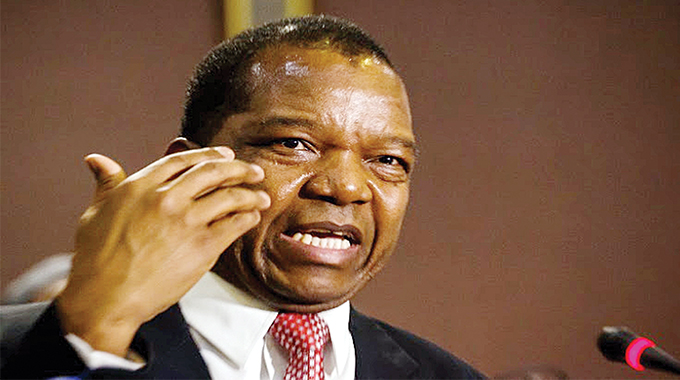EDITORIAL COMMENT: Business must be fair in pricing of goods

NOW that Government has taken back control of the country’s monetary policy and tamed the runaway rates on the parallel market, business must play ball by reducing the prices of goods and services in tandem with the tumbling exchange rates of the United States dollar against the local unit.
While Government has always insisted that there is no correlation between the surge in prices of commodities and the escalating parallel market rates, businesses tracked the rate and pegged their prices on the prevailing black market rates. Their argument was that they needed to restock and by pricing their goods above the prevailing rate, they would be able to buy forex from the parallel market and import their stock. Even those businesses whose raw materials were mostly obtained in the country, priced their goods based on the black market rates.
On Monday last week, Government abolished the multi-currency system and introduced the Zimbabwe dollar as the sole currency of trade in the country. The results were immediate: the parallel market was thrown into turmoil and rates have plunged.
At the weekend they were hovering between USD1:1,7$ZWL and 1:7,5 for electronic transactions. For cash transactions, the parallel market rates were trading at between 1:6 and 1:6,5. Crucially, for the first time since the currency reforms began on October 1 last year, the interbank rate, at 1:8 at some banks, was more than the parallel market exchange rates.
This trend is expected to continue into this week as monetary authorities have said they will move in to support bureaux de change so that they operate efficiently and effectively. Reserve Bank of Zimbabwe Governor Dr John Mangudya yesterday said compliance with the new mono-currency regime was encouraging, as more people were transacting in local currency. “The market has reacted positively to the recent currency reforms implemented by Government. We have seen people now paying in the local currency. What it means is that we are now going to conserve foreign currency, it also means we are going to be a competitive country,” said Dr Mangudya.
Before the new policy measures, the market, the central bank chief said, was increasingly dollarising, which, in turn, put incredible pressures on the RTGS as the US dollar was not only being drained through foreign payments but also stretched through local transactions. Dr Mangudya said the apex bank would ably support the local currency through restricting the growth of both money supply and the fiscal deficit. “With this instrument (SI 142 of 2019) we are going to conserve foreign currency for foreign payments. What we are going to do now is to restrict growth of money supply and fiscal deficit.
“We are also going to relax regulations so that there is ease of transaction. We are going to capacitate the bureau de changes to buy and sell foreign currency for transactions as low as US$500 to cater for small to medium scale enterprises. We have also removed administrative limits on the operation of bureau de changes and on the cap on margins for banks for interbank foreign exchange transactions,” he said.
Writing in The Chronicle today, the Minister of Finance and Economic Development, Professor Mthuli Ncube, said by scrapping the multi-currency system, Zimbabwe had taken back control of its economic destiny. “It had always been apparent to us that for true stability, stability upon which economic growth can be built, our own currency was necessary.
“The multicurrency regime was holding us back. Like a headwind for a cyclist who is already pedalling uphill, the multicurrency regime had left us exposed to the elements. “In this case, the element was the aggressive inflation caused by the US dollar pricing. Put simply, we had to take our destiny back into our own hands; we had to take back control of monetary policy to remove that element, and make it up the hill,” he said.
“Regaining control will first and foremost benefit you, the hardworking Zimbabwean. Our teachers and doctors, our entrepreneurs and cleaners; they don’t earn in US dollars. So why sell in US dollars? Prior to this move, the vast majority of our hard working Zimbabweans were being discriminated against in what had become a two tiered and unfair economy.
“What we had was a situation whereby there were stable and affordable prices for the fortunate Zimbabweans who had access to dollars, and a paralysing high cost of living for the rest of the country. This is not right, and we had to step in”.
Abolishing the use of multiple currencies, and the adoption of the Zimbabwe dollar as the sole legal tender has always been a key component of Government’s Transitional Stabilisation Programme, and a crucial step in restoring normalcy to the economy.
We appeal to businesses to work closely with Government to guarantee the success of the latest move. Already, prices of goods and services continue to tumble with cooking oil, flour, rice and washing powder reportedly on the downward trend. This is encouraging.












Comments